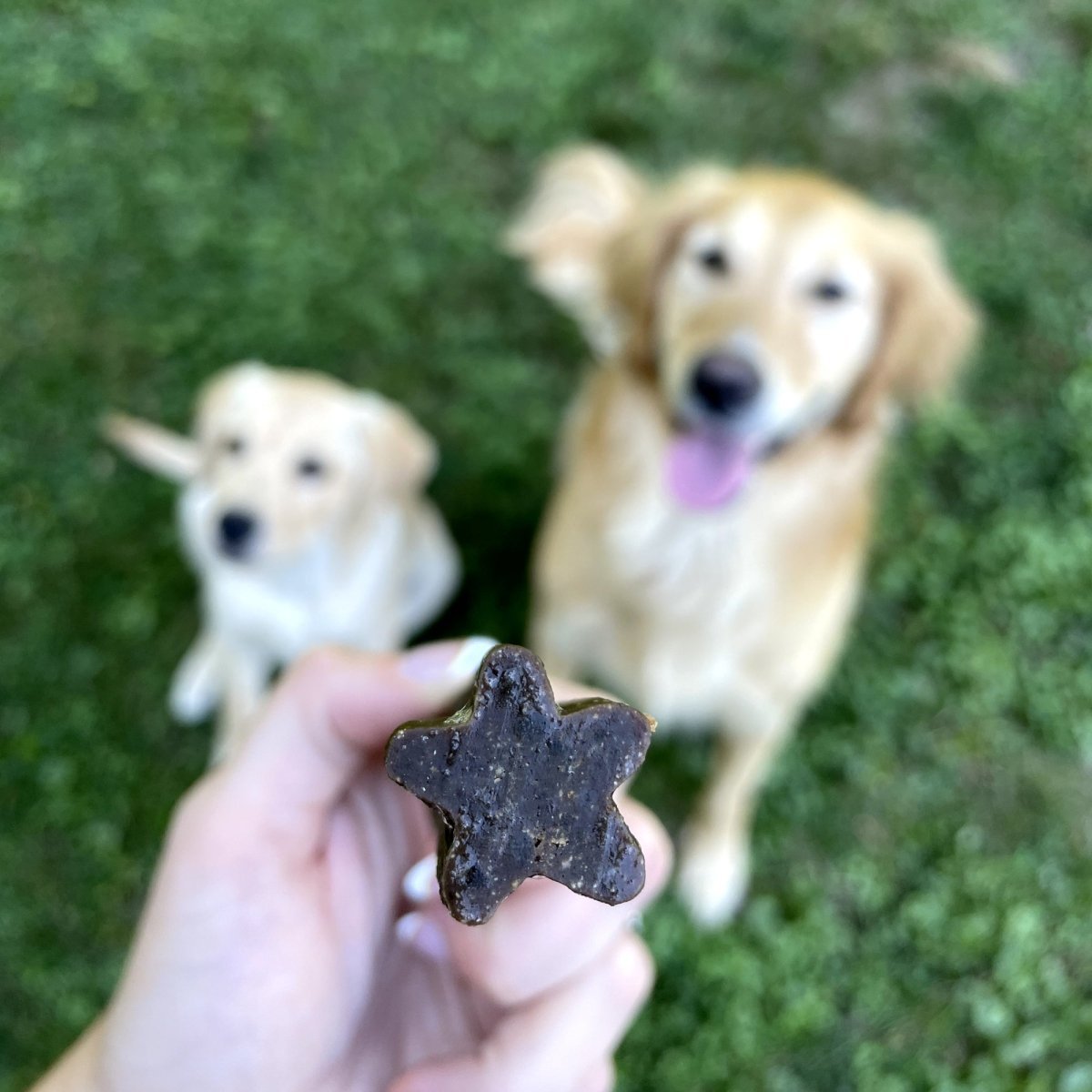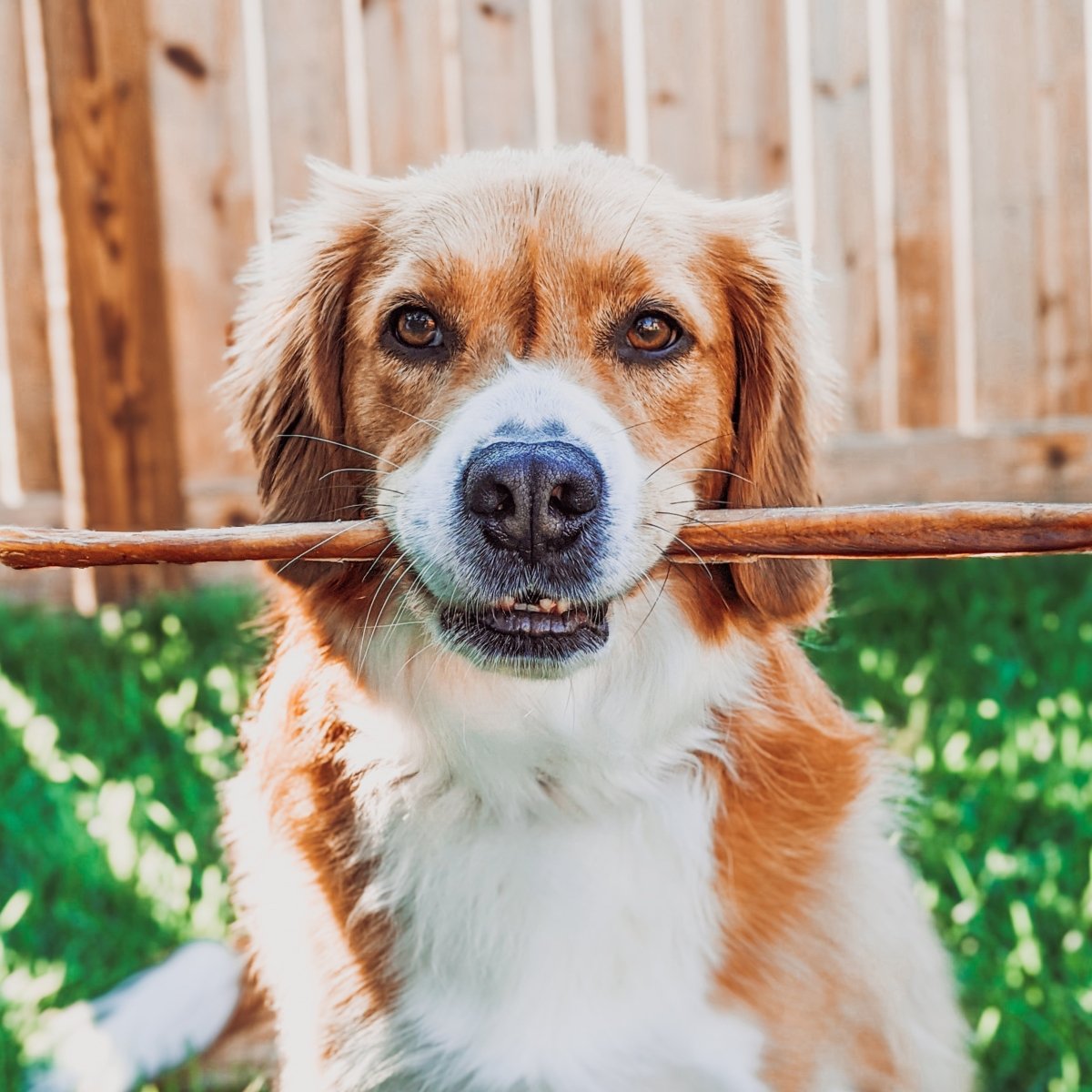
We often pay a lot of attention to our own teeth between brushing, flossing, and going to the dentist. Have you ever wondered about your dog’s teeth? We’ve compiled a guide of answers to the most frequently asked questions about dog dental health. Find the answers to your burning questions and stay on top of your pet’s dental habits.
How many teeth do dogs have?
A normal adult mouth has 32 teeth, but dogs outnumber us! Adult dogs have 42 permanent teeth. They are separated into fourdifferent types: incisors, canines, premolars, and molars. Each of the different types of teeth serves a different purpose for your dog and can have functions outside of just eating.
Incisors: Incisors are the small teeth located at the front of a dog’s mouth. There is a total of 12 incisors, with six on the top and six on the bottom of the mouth. Incisors help dogs tear into certain foods and can be used for self-grooming.
Canines: Canines have canines, too. Canine teeth are sometimes known as the “fangs,” the pointy teeth located at the top and bottom of your dog’s mouth. These teeth can easily puncture and can be used to grip toys when playing.
Premolars: There are 16 premolars in your dog’s mouth. Sometimes, when you give your dog a treat, they will chew it with the side of their mouth, using their premolars.
Molars: Molars are flat teeth and located in the back of the mouth. These teeth are especially good at grinding and chewing. There are 10 total molars, four on the top of your dog’s mouth and six on the bottom.
Do dogs have baby teeth?
Yes, puppies have baby teeth. Typically, puppies get their teeth when they are three weeks old. Puppy teeth are very small and sharp, they lose them as they grow and get adult teeth. There are only 28 puppy teeth, as they don’t develop molars until later. Puppies don’t need molars, which are primarily used for grinding food, because they drink their mother’s milk and don’t eat solid food.
Once puppies get all of their baby teeth, they can start eating soft foods. As they grow, puppies will slowly start to lose their puppy teeth. By the time they are four months old most dogs will have lost all of their baby teeth and adult teeth will grow in. The teethingprocess can be painful for your puppy, but a safe chew toy can relieve some of the pain.
Can dogs get cavities?
Just like humans, dogs can get tooth decay or cavities in their teeth. While cavities are pretty common among people, it is less likely to happen in dogs. About 5% of adult dogs experience cavities, so getting their teeth cleaned is important for their health. Brushing your dog’s teeth, givingthem chews, and goingin for professional cleanings are all part of maintaining your dog’s dental hygiene.
Why is my dog chattering their teeth?
Chattering teeth can mean a variety of different things. Dogs don’t typically chatter their teeth, so when they do it can be slightly alarming. Most of the causes are harmless and not a cause for concern, but sometimes it can also be a sign of a further health problem.
When we get cold, our teeth sometimes chatter. The same thing can happen with dogs, too. When your dog has a low body temperature, they may chatter their teeth as a way to generate heat. Dogs may also start chattering their teeth if they are excited, especially about social interactions with people and other dogs. Sometimes, dogs will also do this when they are anxious, so make sure to be aware of the situation and help alleviate them if this is the case.
Chattering teeth can also help with your dog’s sense of smell. Dogs smell with more than just their nose. They have a second odor-detecting system within the mouth called the vomeronasal system. Chattering their teeth helps dogs bring scent molecules into this system.
Sometimes, chattering teeth can be a sign of a healthproblem. Dogs with dental problems such as broken teeth, cavities, or gum disease may chatter their teeth or chew in odd ways. Sometimes, chattering is caused by old age or epilepsy. Check with your vet if you think your dog could be displaying symptoms of these health problems.
—
Want to learn more pet health tips? Check out our blog. And for great deals on all-natural dog chews, visit our website.
Comments will be approved before showing up.

Dental chews keep plaque in check and gums strong. Read here to learn about nature's toothbrush!

Single-ingredient dog chews and treats are crafted using only one whole food source!

Check out our guide on different types of chews to help you decide on the best chew for your dog!